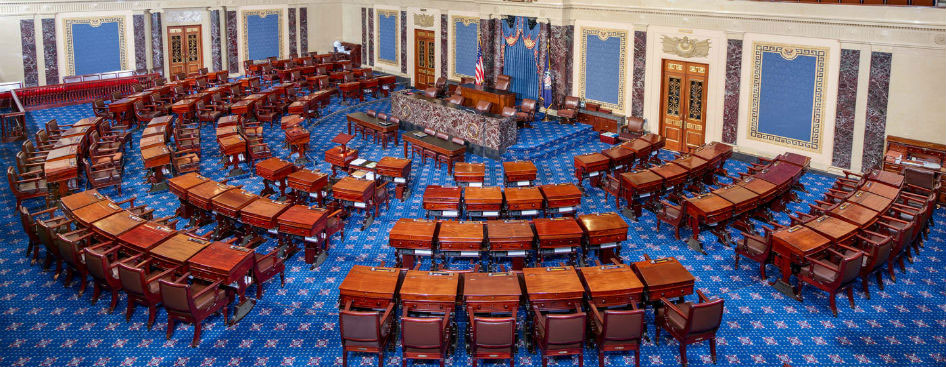Please Follow us on Gab, Minds, Telegram, Rumble, Gab TV, GETTR, Truth Social
On March 29, the Senate voted 66-30 to revoke the 2002 Authorization for the Use of Military Force (AUMF) that gave former president George W. Bush the authority to launch a military invasion of Iraq under the false premise that the country was harboring weapons of mass destruction (WMD). The bill will now proceed to the House of Representatives, where it is unclear whether or not it will be put on the floor for a vote.
Congress has abdicated its powers to the executive for too long," said Senator Tim Kaine. "Presidents can do mischief if there are outdated authorizations on the books," he concluded. Kaine has authored many of the Senate's attempts to abolish the Iraq AUMF over the past several years.
If the bill manages to pass the House and is signed by President Biden, it would be the first revocation of a war authorization since 1974.
Despite voting to repeal the 2002 authorization, the Senate last week overwhelmingly voted against rescinding the original AUMF, which was signed into law on September 18, 2001, by George W. Bush in response to the devastating attacks on September 11.
The 2001 AUMF is seen more in the light of being a sweeping, blank-check law that was passed to target the perpetrators of the 9/11 attacks, whereas the Iraq AUMF specifically gave authority for the U.S. to invade another country.
Get gains in the gym in style with AFP Merch!
The 2001 AUMF has been used to justify over 40 military interventions in at least 22 countries without the approval of Congress, according to the Congressional Research Service.
Following 2001, Congress also approved several 'security cooperation authorities' (SCA) that have permitted the Pentagon to covertly deploy troops and launch secret wars in dozens of countries.
According to a New York University of Law's Brennan Center for Justice report, an SCA allows the Pentagon to "train and equip foreign forces anywhere in the world" and to "provide support to foreign forces, paramilitaries, and private individuals who are in turn supporting U.S. counterterrorism operations," and comes with a spending limit of $100,000,000 per fiscal year.
SCAs have been used in dozens of countries as springboards for hostilities, which the Pentagon has chosen not to inform Congress or the American public of.
The report states, "Researchers and reporters uncovered [SCA] programs not only in Afghanistan and Iraq, but also in Cameroon, Egypt, Kenya, Lebanon, Libya, Mali, Mauritania, Niger, Nigeria, Somalia, Syria, Tunisia, and Yemen."
"The U.S. military-industrial complex has grown into a hydra-headed monster with almost no controls on the American war machine," wrote the former acting head of the Pentagon, Christopher C. Miller, who believes the U.S. should be held accountable for the failed wars in Iraq and Afghanistan.
"We invaded a sovereign nation, killed and maimed a lot of Iraqis, and lost some of the greatest American patriots to ever live - all for a goddamned lie," Miller added in an interview with The Hill.

























